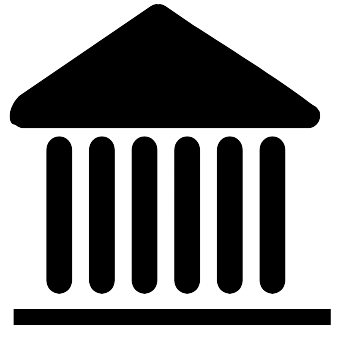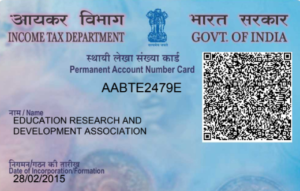Introduction








Introduction
Education Research and Development Association (ERDA) is a registered non-profit organization established in 2015 with a dual focus: to advance education and research across diverse disciplines, and to devise and execute strategies for fostering inclusive social development. Operating as a membership-based entity, ERDA boasts a widespread presence, drawing members from nearly all states and union territories within India. Additionally, ERDA proudly includes members hailing from more than ten foreign nations.
ERDA’s vision is to transform the society through Education, Innovation and Compassion. Its mission is to empower people around the globe for an enlightened and inclusive society. ERDA’s core principles revolve around fundamental values such as Academic Integrity, Social Responsibility, Diversity, Solidarity, and Empathy.”
Legal Status of ERDA:
ERDA is registered under Indian Trust Act on 28/02/2015 at Patna, India.

Permanent Account Number (PAN) allotted by Income Tax Department of India is AABTE2479E

Organizational Structure
ERDA operates under a dual-layer governance system, consisting of the Non-Executive Body (also referred to as the Supervisory Body) and the Executive Body. The Non-Executive Body, comprising a maximum of 16 members, includes the Managing Trustee and the four Founder Trustees as permanent members. Other members are carefully selected by the Managing Trustee, in consultation with the Founder Trustees, for a three-year tenure, extendable based on their valuable contributions. The role of the Non-Executive Body is primarily supervisory, with members chosen based on their qualifications and experience, ensuring an unbiased perspective.
Executive Body Dynamics
The Executive Body, appointed by the Non-Executive Body, comprises a maximum of 21 members. It encompasses essential office bearers such as the President, Vice President, General Secretary, Joint Secretary, Treasurer, and Executive Members. Empowered to manage the day-to-day operations of ERDA, the Executive Body functions autonomously, except in cases where a decision may not align with the best interests of the association’s stakeholders. In such instances, the Non-Executive Body possesses the authority to propose revisions or rectifications.
Specialized Centers for Impactful Initiatives
ERDA’s vision is translated into action through five dedicated centers. Three of these centers – the Centre for Promoting Education and Research in Science and Technology (CPERST), Centre for Promoting Education and Research in Commerce and Management (CPERCM), and Centre for Promoting Education and Research in Humanities and Social Sciences (CPERHS) – are focused on advancing education and research. Additionally, two centers, the Centre For Social Development (CSD) and Centre For Establishment of Social Enterprises (CESE), are committed to driving social progress. Oversight for these centers is jointly administered by both the Non-Executive and Executive Bodies.
Empowered Leadership
Each center is headed by a Center President, supported by Vice Presidents from diverse subfields, working collaboratively towards achieving the center’s objectives. The appointments of Presidents and Vice Presidents are made by the Non-Executive Body in consultation with the Executive Body.
Global and National Outreach
ERDA’s international outreach is facilitated through Country Presidents and Vice Presidents across various countries, while domestically, the organization extends its impact with State and District Presidents and Vice Presidents across different states and districts in India. Further, ERDA’s commitment to student welfare is realized through the appointment of Student Representatives at the Country, State, and District levels.
Flexible Governance for Future Growth
ERDA’s governance structure is designed to adapt to evolving needs. Modifications may be implemented as required to ensure continued effectiveness.
Appointment Criteria
The appointment of members to all positions is guided by academic qualifications, noteworthy achievements, and extensive experience in their respective fields.
